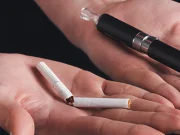WVA director Michael Landl highlighted that studies have indicated that flavoured vapes increase the chances of successful smoking cessation by 230% compared to their non-flavoured counterparts. The WVA also referred to the research indicating that vaping is 95% less harmful than smoking and more effective in helping smokers quit than traditional methods like gum and patches. To this effect, argue THR experts, restricting or banning access to vape flavours, would undermine public health efforts and lead to unnecessary loss of lives.
Landl said the WHO’s proposal is a blatant neglect of its duty to protect public health, describing it as a regressive move that will likely drive people back to smoking. The WVA urges global health policymakers to reject the WHO’s recommendation and adopt a more evidence-based, balanced approach to regulaing vapes.
The alliance advocates for policies that respect the rights and choices of adult smokers, while effectively addressing the issue of youth vaping without resorting to measures that would reverse the gains made in smoking cessation. The group also calls for decisions which are based on science and real-world evidence, rather than on unfounded fears and moral panic.
A strategy which actually works
In fact, the UK’s science-based contrasting approach, has yielded astoundingly positive results. In 2021, the Medicines and Healthcare products Regulatory Agency had announced that any approved vaping products (with no restrictions on flavours) would be made available for doctors to prescribe. “Opening the door to a licensed e-cigarette prescribed on the NHS has the potential to tackle the stark disparities in smoking rates across the country, helping people to stop smoking wherever they live and whatever their background,” said Health Secretary Sajid Javid at the time.
While a 2022 study from the University of East Anglia (UEA), had indicated that giving out vape starter kit vouchers through the UK’s National Health Service (NHS) could help even the most seasoned smokers quit. Working closely with GPs and the NHS stop smoking service, to evaluate a pilot vape shop voucher scheme to help patients who had tried and failed to quit smoking in the past, UEA researchers had found that 42% of the smokers prescribed a vape kit, had managed to quit within a month.
The pilot scheme consisted of 668 participants who were referred to receive a vape shop voucher that could be redeemed for a vape kit from a local vape shop. Of these, 340 redeemed their voucher, along which they were given advice about e-liquid strengths and flavours, in addition to support from Smokefree Norfolk. Following the success of the pilot, the scheme was rolled out nationally, achieveing unparallel smoking cessation success rates.
“This scheme enabled 42 percent of entrenched smokers who redeemed a voucher to have successfully quit smoking at four weeks. This is especially important because it helped those who have tried and failed to quit smoking many times to move away from tobacco,” said lead researcher and addiction expert Prof Caitlin Notley, from UEA’s Norwich Medical School.”
Real-world data confirm that flavour bans do not work
While recent data from California where a flavour ban was set in 2020, have confirmed it was ineffective. A recent study published on November 7th in the journal Tobacco Control found that many consumers in California are now shopping for flavoured cigarettes and vapes online. The findings indicated that shopping queries were 194% and 162% higher than estimated for cigarettes and vaping products respectively after the law went into effect.
Moreover, in line with warnings by THR experts, the ban has given the local blackmarket of flavoured products a boost, and as a result the U.S. vape market, which is currently valued at $7 billion, is now facing challenges in curbing the influx of unauthorized flavoured vapes.












